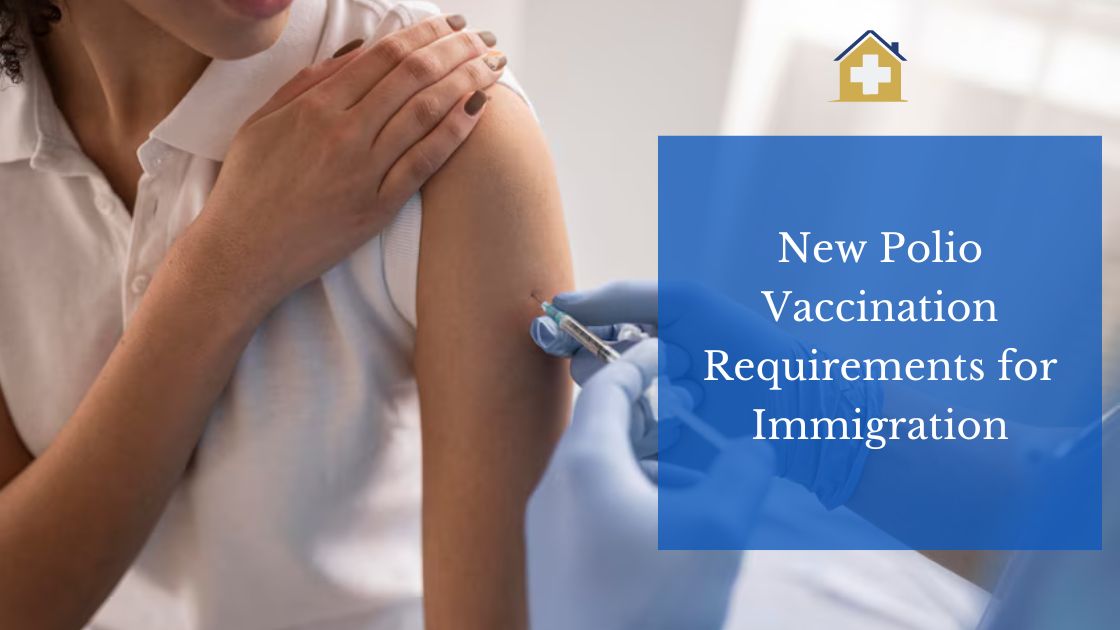

Effective Jan. 22, 2025, USCIS is waiving any and all requirements that applicants receive the COVID-19 vaccination.

The CDC (Centers for Disease Control and Prevention) advises that all children receive the polio vaccine as part of their routine childhood immunizations to protect against poliomyelitis. In the United States, the inactivated polio vaccine (IPV) has been the standard since 2000 and is administered via injection in the leg or arm, depending on the child's age.
Children should receive four doses of the polio vaccine at 2 months, 4 months, 6-18 months, and 4-6 years. Adults in the US are generally protected from polio with childhood vaccinations. However, unvaccinated or incompletely vaccinated adults should complete their IPV series. Additionally, adults who have completed their vaccination series but are at increased risk of poliovirus exposure may receive a one-time IPV booster.
CDC's recent policy update regarding polio vaccination requirements bolsters immunity across various age groups. Let's explore what changed with the update.
Children: Polio vaccination is a standard part of the childhood immunization schedule. Typically, children receive four doses of the Inactivated Polio Vaccine (IPV) at specific ages:
Adults: The assumption was that most adults in the US who received childhood vaccinations were likely protected from polio. However, this relied on complete childhood vaccination records and wasn't always the case.
Children: The recommended polio vaccination schedule for children remains the same. It's crucial to ensure children receive all four doses for optimal protection.
Adults: The CDC guidelines for polio vaccine now emphasize the importance of polio vaccine requirements for adults. Here's how it impacts the adults:
Documentation requirements for polio shots can vary depending on your location and situation. However, here's a general guideline of what you might need:
Through blood tests, polio titers evaluate antibody levels against poliovirus, offering valuable information about individual immunity. However, they cannot replace polio vaccinations due to several reasons, such as:
Relying solely on titers may result in incomplete protection, leaving individuals susceptible to poliovirus variants for which they lack immunity. Vaccination campaigns remain crucial for achieving population immunity and preventing polio outbreaks. Therefore, while polio titers provide valuable information, they are not a substitute for the comprehensive protection of polio vaccinations.
There are several convenient places where you can get vaccinated, including:
Are polio shots still required for traveling abroad for family or work? Dr. Steven Wittenberg Gordon can help ensure a smooth process! With years of experience in immigration medical exams, Dr. Gordon will review your vaccination history and provide a booster shot if needed. Contact us today to get started on your visa journey!